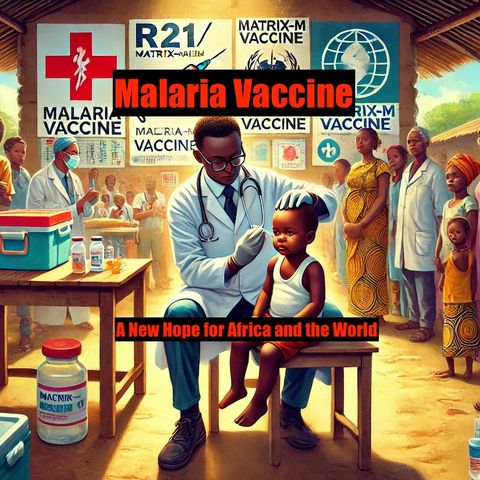Combating Malaria: Delhi Sees 55% Rise, Vaccine Offers Promising Solution

Scarica e ascolta ovunque
Scarica i tuoi episodi preferiti e goditi l'ascolto, ovunque tu sia! Iscriviti o accedi ora per ascoltare offline.
Combating Malaria: Delhi Sees 55% Rise, Vaccine Offers Promising Solution
Questa è una trascrizione generata automaticamente. Si prega di notare che non è garantita la completa accuratezza.
Descrizione
In a significant stride towards combating malaria, health officials in Delhi have reported a 55% increase in malaria cases this year. Despite the surge, no fatalities associated with the disease...
mostra di piùDelhi's rise in malaria cases has prompted intensified responses from public health departments, focusing on preventing the spread through mosquito control measures and increasing public awareness campaigns about the risks and prevention strategies.
Concurrently, the global health community is focussing on the development and deployment of a malaria vaccine, which promises a groundbreaking impact. The malaria vaccine, known scientifically as RTS,S/AS01 (trade name Mosquirix), has been under development for several years and is the first to achieve approval from the World Health Organization as of October 2021.
The vaccine operates by targeting the Plasmodium falciparum, the most deadly malaria parasite globally and the most prevalent in Africa. Clinical trials have found that the RTS,S vaccine reduces cases of malaria by about 40%—the first vaccine ever to achieve such a feat against a parasitic disease in humans.
While the vaccine is a significant tool, it’s not completely efficacious and works best as part of a broader integrated disease control strategy that includes insecticide-treated bed nets, prompt diagnostic testing, and effective antimalarial medications.
The roll-out of this vaccine could dramatically alter the landscape of malaria control, especially in sub-Saharan Africa, where the burden of the disease is heaviest. For instance, Ghana, Kenya, and Malawi have initiated pilot programs that integrate the vaccine into their national immunization schedules.
As Delhi tackles its spike in malaria cases, such a vaccine becomes particularly relevant. Although India was not one of the initial countries to pilot the RTS,S vaccine, the rising cases could potentially accelerate discussions for its introduction as a supplementary control measure.
Healthcare professionals in Delhi and policymakers will need to consider various factors including the cost of the vaccine, logistical challenges, public acceptance, and above all, vaccine effectiveness in the context of the local strains of malaria.
The increased incidence of malaria in Delhi coupled with the advent of new vaccines represents a critical juncture for public health officials. Strategic planning and international cooperation will be crucial in leveraging this innovation in vaccine science to curb the impacts of malaria, not only in India but across the globe.
Informazioni
| Autore | QP-4 |
| Organizzazione | William Corbin |
| Sito | - |
| Tag |
Copyright 2024 - Spreaker Inc. an iHeartMedia Company

Commenti